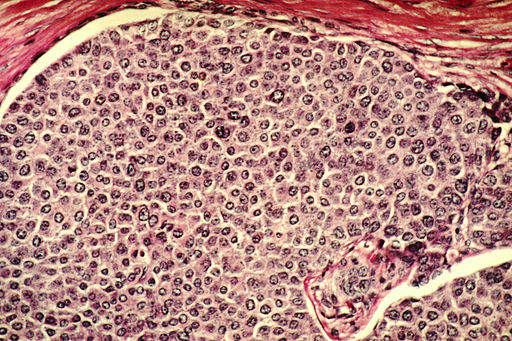
Merck and OncoSec Medical have announced an upcoming collaboration on a clinical trial eDr. Cecil Fox xamining two of their immunotherapies in metastatic triple-negative breast cancer.
OncoSec will sponsor and fund the study, while Merck will provide its anti-PD-1 therapy Keytruda (pembrolizumab). This will be combined with OncoSec’s ImmunoPulse interleukin-12 (IL-12), and will be examined in patients with locally advanced and inoperable or metastatic disease following the failure of systemic chemotherapy or immunotherapy.

Discover B2B Marketing That Performs
Combine business intelligence and editorial excellence to reach engaged professionals across 36 leading media platforms.
ImmunoPulse is Oncosec’s immunotherapy platform designed to deliver IL-12, a protein that works to stimulate the immune system. The treatment produces a controlled, localised expression of IL-12 in the tumour microenvironment, which helps the immune system to identify and attack tumours throughout the body.
The trial follows a similar collaboration between the companies announced last year, a Phase II study examining the same drugs in combination as a melanoma treatment. Approximately 50 late-stage metastatic melanoma patients who have had an anti-PD-1 therapy will be enrolled. Completion of this trial is expected in late 2020.
Though checkpoint inhibitors, such as Keytruda, have shown efficacy in improving progression-free and overall survival in certain cancers, single-agent therapies alone are often ineffective in patients. As such, OncoSec has predicted its IL-12 agent will increase the efficacy of PD-1 therapies through stimulating the body’s immune system when injected directly into the tumour.
Anti-PD-1 and anti-PD-L1 treatments do not kill cancer cells, but are designed to block a pathway that protects tumour cells from immune system attacks. The pathway consists of two proteins; programmed death-1 (PD-1) and programmed death ligand-1 (PD-L1). The former is found on the surface of immune cells, while the latter is expressed on cancer cells. Combined, these proteins form a protective shield, which prevents the immune system from destroying tumour cells.

US Tariffs are shifting - will you react or anticipate?
Don’t let policy changes catch you off guard. Stay proactive with real-time data and expert analysis.
By GlobalDataTreatments that target PD-1 and PD-L1 have become increasingly popular in recent years, catalysing numerous oncology trials in a bid to find effective and successful combinations of immunotherapy permutations.
Keytruda has been a particularly popular antibody used in such trials, reporting mixed results. A recent Phase I study combined it with Checkmate Pharmaceuticals’ CMP-001, and found the combination to reverse anti-PD-1 drug resistance in advanced melanoma patients. Conversely, a Phase III study of Keytruda in combination with Incyte’s IDO1-inhibitor epacadostat did not show any improvement in progression-free survival compared to Keytruda alone.
Triple-negative breast cancer is characterised by tumours that do not express oestrogen receptor (ER), progesterone receptor (PR), or HER-2 genes. This type of cancer proves difficult to treat as endocrine therapy and other targeted agents often prove ineffective against it. Metastatic triple-negative breast cancer tumours are associated with a shorter average time to relapse and death, making the development of effective treatments an urgent need.





